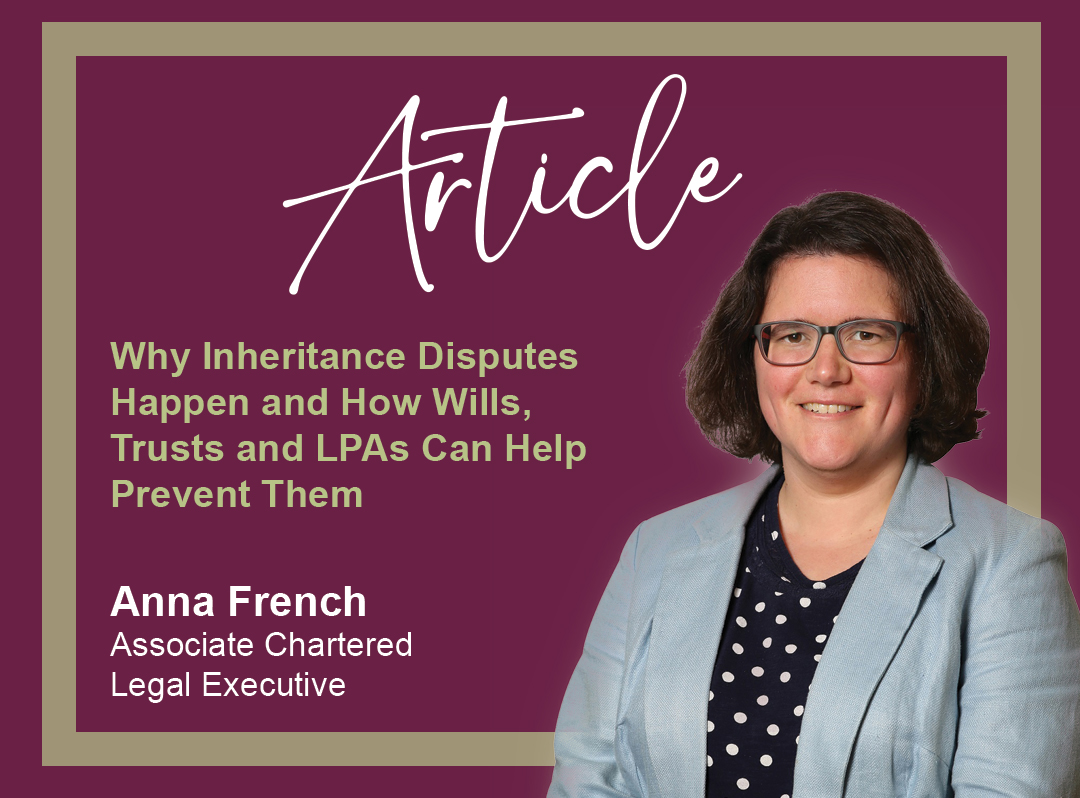
Why Inheritance Disputes Happen and How Wills, Trusts and LPAs Can Help Prevent Them
Disputes between families and friends over estates are becoming more common. In the final quarter of 2024, the Probate Registry received over 3,000 applications to…

Disputes between families and friends over estates are becoming more common. In the final quarter of 2024, the Probate Registry received over 3,000 applications to…
Disputes between families and friends over estates are becoming more common. In the final quarter of 2024, the Probate Registry received over 3,000 applications to…
The ability to make decisions about our own welfare, finances, and property is fundamental to adult life. However, when illness, accident, or disability removes this…
As solicitors who have been supporting individuals and families for over 70 years. We know first-hand that circumstances rarely stay the same. Relationships change, health…
Finding out that a loved one, whether a family member or close friend, has dementia can be deeply challenging. It is hard to see someone…
Renters’ Rights Act The Renters Rights Act 2025 received Royal Assent on 27 October 2025, marking the most significant reform to renters’ rights and short-term…
The High Court has handed down its long-awaited decision in Arc Time Freehold Income Authorised Fund & others v Secretary of State for Housing, Communities…
Divorce is one of the most difficult experiences a family can face, not only for the couple involved but also for any children caught in…
Planning for the future can feel daunting, but it is one of the most important steps you can take to protect yourself and those you…
HM Revenue & Customs (HMRC) has reintroduced a hard-hitting tool to tackle unpaid tax: the ability to take money directly from a debtor’s bank account….
For the first time since September 2022, average two-year fixed mortgage rates in the UK have fallen below 5%. The current average is now 4.99%,…
Whether you’re buying your first home, selling a property, or remortgaging, conveyancing is a key part of the process. It can feel overwhelming, especially if…
Life is full of changes, marriage, parenthood, divorce, new assets, and each one can prompt a serious rethink of your estate planning. Revoking a Will…